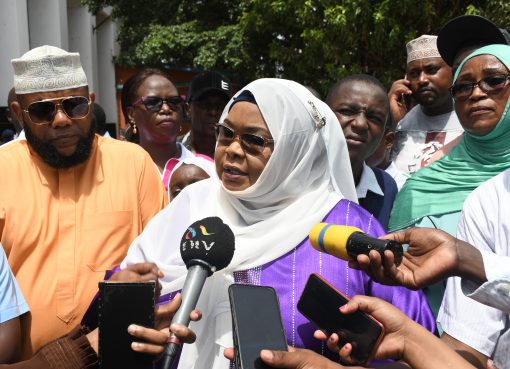Muslims across the world are next week set to start observing the holy month of Ramadhan, a period of fasting and prayers.
The holy month is expected to start either on Sunday or Monday if the Chief Kadhi Sheikh Ahmed Mudhar announces the sighting of the new moon.
Muslims consider the 9th month of their calendar, known as Ramadhan which is associated with fasting and avoiding all forms of enjoyment.
The fourth pillar of Islam, it is a period of dedication to constant prayers and restraint for the whole body and also a month of reaching out to people and giving to the needy and poor.
During the daily fast, Muslims refrain from dawn to sunset from eating, drinking, smoking and husband and wife sexual relationships.
Fasting is compulsory upon every Muslim male or female but exemptions include children under the age of puberty, insane people, men and women who are too old to undertake the obligation of fast.
Others include sick people whose health is likely to be severely affected by the observance of fast, pregnant women and women breast-feeding their children and women in the period of menstruation.
A prominent Muslim Cleric Sheikh Othman Naaman said the first 10 days of Ramadan are mercy, the middle 10 days are forgiveness and last 10 days are salvation.
Sheikh Naaman in an interview with KNA said during fasting faithful should not listen to those who swear or look at obscene or unlawful things.
The cleric said the faithful should learn the wisdom and lessons to be derived from this month of mercy by changing their bad attitudes and behaviours.
“Overall, those observing fast must avoid smoking, sex, food, evil thoughts and acts,” said Sheikh Naaman on Friday.
He said people must check their manners and recite the holy Koran a lot since this is the month the Islamic holy book was revealed to the prophet Muhammad.
Sheikh Naaman said “the blessed month of Ramadhan is also a month of generosity and giving saying the month is meant for Muslims to identify with the less fortunate and their needs and hunger.”
On his part, the Organizing Secretary of Council of Imams and Preachers (CIPK) Sheikh Mohamed Khalifa appealed for enhanced security for those venturing out to offer the nightly special prayers in mosques.
He said Muslims are highly encouraged to pray more during this month and there are extra prayers at night ‘Taraweeh’, which are mostly performed in the mosque as congregational prayers.
At the same time the religious leaders have welcomed the government’s move to waive tax on imported date fruits during the fasting Muslim holy month of Ramadhan.
In a letter to Kenya Revenue Authority (KRA), the national government said it will pay tax imposed on imported dates for use during the Holy month of Ramadhan.
Dates are sweet fruits that grow in a palm-like tree and are mostly found in the Middle East countries including Saudi Arabia, Iran, Jordan, Syria and United Arab Emirates.
The fruit is traditionally the first food Muslims break their daylong fast with in the evening.
Sheikh Khalifa said the move will go a long way in assisting the Muslims since dates are a popular food item mostly consumed during the blessed month of Ramadhan.
The cleric cautioned traders not to skyrocket the prices of date fruits so that poor Muslims cannot afford them.
“Actually price of dates should come down during the month of Ramadhan following removal of tax,’ added Sheikh Khalifa who also asked Muslims to pray for peace and stability in the country.
Meanwhile, Coast Regional Commissioner John Elungata has assured residents of adequate security during Ramadhan.
While wishing Muslims a successful and happy fasting, Elungata said police would deal firmly with those planning to perpetrate criminal activities during the holy month of Ramadhan.
The Administrator said security patrols would be frequent and warned criminals not to take advantage of the month of fasting to commit crime.
He said they have taken steps to heighten security across the coastal region and there would be visible police deployments at places of worship to guarantee safety of worshipers.
By Mohamed Hassan




